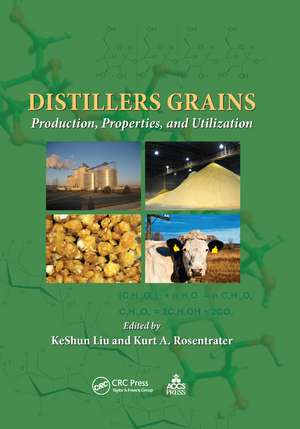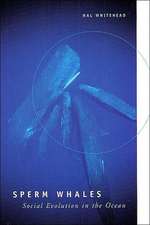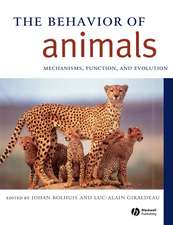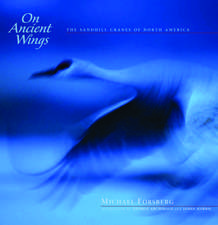Distillers Grains: Production, Properties, and Utilization
Editat de KeShun Liu, Kurt A. Rosentrateren Limba Engleză Paperback – 23 sep 2019
Distillers Grains: Production, Properties and Utilization is the first book of its kind to provide in-depth, and up-to-date coverage of
- Historical and current status of the fuel ethanol industry in the U.S.
Processing methods, scientific principles, and innovations for making fuel ethanol using grains as feedstock - Physical and chemical properties of DDGS, assay methodologies for compositional analyses, and mycotoxin occurrence in DDGS
- Changes during processing (from grains to DDGS) and analysis of factors causing variations in compositional, nutritional, and physical values
- Various traditional, new, and emerging uses for DDGS (including feed for cattle, swine, poultry, fish, and other animals, feedstocks for cellulosic ethanol, biodiesel, and other bioenergy production, and substrates for food and industrial uses)
Appealing to all who have an interest in fuel ethanol production, distillers grains, and their uses, this comprehensive reference sharpens the readers’ understanding of distillers grains and will promote better utilization of ethanol coproducts. Animal and food scientists, feed and food technologists, ethanol plant managers and technicians, nutritionists, academic and governmental professionals, and college students will find the book most useful.
| Toate formatele și edițiile | Preț | Express |
|---|---|---|
| Paperback (1) | 511.34 lei 6-8 săpt. | |
| CRC Press – 23 sep 2019 | 511.34 lei 6-8 săpt. | |
| Hardback (1) | 999.97 lei 6-8 săpt. | |
| CRC Press – 25 iul 2011 | 999.97 lei 6-8 săpt. |
Preț: 511.34 lei
Preț vechi: 601.58 lei
-15% Nou
Puncte Express: 767
Preț estimativ în valută:
97.84€ • 102.16$ • 80.98£
97.84€ • 102.16$ • 80.98£
Carte tipărită la comandă
Livrare economică 05-19 aprilie
Preluare comenzi: 021 569.72.76
Specificații
ISBN-13: 9780367382568
ISBN-10: 0367382563
Pagini: 564
Dimensiuni: 178 x 254 x 36 mm
Greutate: 1.07 kg
Ediția:1
Editura: CRC Press
Colecția AOCS Publishing
ISBN-10: 0367382563
Pagini: 564
Dimensiuni: 178 x 254 x 36 mm
Greutate: 1.07 kg
Ediția:1
Editura: CRC Press
Colecția AOCS Publishing
Public țintă
Academic and Professional ReferenceCuprins
Introduction, History, Raw Materials, and Production: Toward a Scientific Understanding of DDGS. Overview of Fuel Ethanol Production and Distillers Grains. Historical Perspective on Distillers Grains. Grain Structure and Composition. Manufacturing of Fuel Ethanol and Distillers Grains—Current and Evolving Processes. Ethanol Production from Starch-Rich Crops Other than Corn and the Composition and Value of the Resulting DDGS. Properties, Composition, and Analytics: Physical Properties of DDGS. Chemical Composition of DDGS. Lipids in DDGS. Analytical Methodology for Quality Standards and Other Attributes of DDGS. Mycotoxin Occurrence in DDGS. Traditional Uses: Feeding DDGS to Beef Cattle. Feeding DDGS to Dairy Cattle. Feeding DDGS to Swine. Feeding DDGS to Poultry. Further Uses: Feeding DDGS to Finfish. Feeding DDGS to Other Animals. Using DDGS as a Food Ingredient. Emerging Uses: Using DDGS in Industrial Materials. Using DDGS as a Feedstock for Bioenergy via Thermochemical Conversion. Using DDGS as a Feedstock for Bioenergy via Anaerobic Digestion. Dry Grind Coproducts as Cellulosic Ethanol Feedstock for Fuel Ethanol. Extraction and Use of DDGS Lipids for Biodiesel Production.. Process Improvements: Improved and New Enzymes for Fuel Ethanol Production and Their Effect on DDGS. Fractionation of DDGS Using Sieving and Air Classification. Concluding Thoughts—Toward Increasing the Value and Utility of DDGS. Index.
Notă biografică
KeShun Liu, Ph.D., is a Research Chemist with the United States Department of Agriculture, Agricultural Research Service in the Pacific West Area. His research program focuses on developing plant-based ingredients (protein and/or lipid) for fish feed and other uses. He has over 26 years of research experience at academic institutions, in private industries, and at governmental agencies in the field of food science and technology. His expertise is in chemistry, processing, and value-added utilization of grains, oilseeds, legumes, and their by-products (including distillers grains).
Kurt Rosentrater, Ph.D., a Bioprocess Engineer, is a Lead Scientist with the United States Department of Agriculture, Agricultural Research Service, at the North Central Agricultural Research Laboratory in Brookings, South Dakota. His research program focuses on issues associated with distillers grains, the coproducts from fuel ethanol production, and value-added utilization for these coproducts. His expertise is in process and product development, alternative recycling and reprocessing strategies for food and organic waste streams, modeling and simulation of processing systems, plant layout, and engineering design. Prior to joining USDA, he was on faculty at Northern Illinois University, and also worked in private industry.
Kurt Rosentrater, Ph.D., a Bioprocess Engineer, is a Lead Scientist with the United States Department of Agriculture, Agricultural Research Service, at the North Central Agricultural Research Laboratory in Brookings, South Dakota. His research program focuses on issues associated with distillers grains, the coproducts from fuel ethanol production, and value-added utilization for these coproducts. His expertise is in process and product development, alternative recycling and reprocessing strategies for food and organic waste streams, modeling and simulation of processing systems, plant layout, and engineering design. Prior to joining USDA, he was on faculty at Northern Illinois University, and also worked in private industry.
Descriere
This reference provides in-depth coverage of the history and current status of the fuel ethanol industry in the United States. It examines processing methods, scientific principles, and innovations for making grain-based fuel ethanol; physical and chemical properties of distillers dried grains with solubles (DDGS); assay methodologies for compositional analyses; and mycotoxin occurrence in DDGS. The contributors also discuss changes during processing and analysis of factors causing variations in compositional, nutritional, and physical values. Additional chapters cover emerging uses for DDGS, including feed for livestock, feedstocks for bioenergy production, ingredients for food, and industrial materials.












